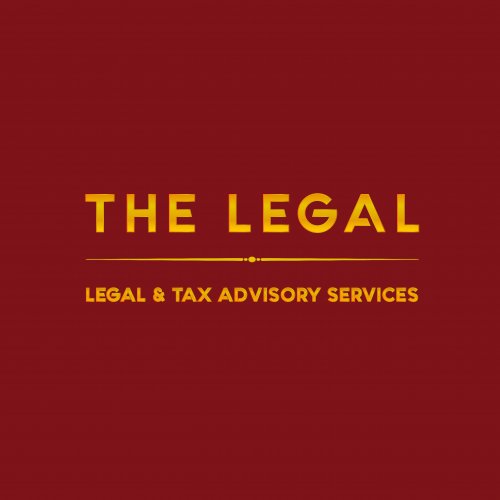Best Cyber Law, Data Privacy and Data Protection Lawyers in Thailand
Share your needs with us, get contacted by law firms.
Free. Takes 2 min.
Or refine your search by selecting a city:
List of the best lawyers in Thailand
Legal guides written by Mahanakorn Partners Group Co., Ltd:
- Thailand Strengthens Anti-Money Laundering Laws with New Amendments
- Recent Updates to Thailand’s Long-Term Resident (LTR) Visa and SMART Visa Programs
- Managing Risks in Public-Private Partnership Projects
Thailand Cyber Law, Data Privacy and Data Protection Legal Articles
Browse our 1 legal article about Cyber Law, Data Privacy and Data Protection in Thailand written by expert lawyers.
- Understanding Data Privacy Laws in Thailand, Our 2024 Update
- Reflecting a worldwide trend toward tighter data governance, Thailand has made notable progress in controlling data privacy and protection in recent years. After eventually coming into effect in 2022, having been delayed mostly due to the COVID-19 Pandemic, the Personal Data Protection Act (PDPA) 2019 represented a significant turning point... Read more →
About Cyber Law, Data Privacy and Data Protection Law in Thailand
Cyber Law, Data Privacy, and Data Protection laws in Thailand are crucial for regulating the growing digital realm of data handling, cybersecurity, and internet activities. As technology advances, Thailand has instituted legal frameworks to govern how personal data is collected, used, and shared, as well as to protect against cyber threats. A landmark in this field is the Personal Data Protection Act (PDPA), which mirrors the European Union's GDPR and highlights the country's commitment to data privacy. Furthermore, the Computer Crime Act deals with cybercrime, ensuring legal consequences for illicit online activities. These laws collectively aim to balance technological development with the safeguarding of individual rights and national security.
Why You May Need a Lawyer
Individuals and businesses may require legal assistance in Cyber Law, Data Privacy, and Data Protection for various reasons. For businesses, it’s vital to ensure compliance with the PDPA to avoid hefty fines and penalties. You might need a lawyer if you are a tech business dealing with extensive personal data, or if you need to draft data protection policies. On a personal level, if you feel your data privacy has been violated or need help understanding your rights, legal advice can be essential. Additionally, in the event of cybercrime, such as hacking or identity theft, legal expertise is necessary to navigate through the intricacies of the Computer Crime Act.
Local Laws Overview
In the context of Cyber Law, Data Privacy, and Data Protection in Thailand, two primary statutes are often referenced. The first is the Personal Data Protection Act (PDPA), which provides comprehensive guidelines and regulations for handling and processing personal data. It emphasizes the need for consent, transparency, and accountability in data usage. The second is the Computer Crime Act, which addresses illegal activities conducted via computers and networks, such as data breaches, hacking, and unauthorized interception of data. Understanding these laws is critical for both individuals and organizations to ensure lawful conduct and protect their data rights.
Frequently Asked Questions
What is the Personal Data Protection Act (PDPA)?
The PDPA is a law that governs the collection, use, and protection of personal data in Thailand. It aims to protect individuals' privacy and ensure that data is handled responsibly and transparently.
What are my rights under the PDPA?
Under the PDPA, you have the right to access your data, request its correction or deletion, withdraw consent for its use, and lodge complaints if you believe your data rights have been violated.
Who needs to comply with the PDPA?
Any individual or entity that collects, uses, or processes personal data in Thailand must comply with the PDPA, irrespective of whether they are based in Thailand or abroad.
How does the Computer Crime Act affect internet usage?
The Computer Crime Act regulates online activities by defining offences related to computer systems and data, such as hacking, illegal access, and data theft. It seeks to protect against cybercrime.
What steps must businesses take to comply with the PDPA?
Businesses must conduct data protection impact assessments, implement security measures, appoint a data protection officer if necessary, and ensure all data processing aligns with PDPA guidelines.
Can authorities access my personal data?
Yes, but only under specific conditions and typically when it concerns national security, public order, or legal mandates. Such access should still comply with the principles of necessity, proportionality, and legality.
What constitutes a data breach under Thai law?
A data breach involves any unauthorized access, use, disclosure, or destruction of personal data, potentially compromising its confidentiality, integrity, or availability.
How can I report a cybercrime in Thailand?
You should report cybercrimes to Thailand’s Ministry of Digital Economy and Society or local law enforcement agencies who will guide you through the complaint process.
What penalties exist for violating the PDPA?
Penalties include fines, which can be substantial, and in severe cases, criminal charges leading to imprisonment. Fines are based on the nature and extent of the violation.
How does the PDPA affect international businesses operating in Thailand?
International businesses dealing with Thai residents' personal data must comply with the PDPA's standards, even if they operate from outside Thailand. This includes obtaining consent and ensuring data protection measures are in place.
Additional Resources
For more information about Cyber Law, Data Privacy, and Data Protection in Thailand, consider reaching out to the following:
- Thailand's Ministry of Digital Economy and Society
- Office of the Personal Data Protection Committee (PDPC)
- Thai Bar Association
- Local legal firms that specialize in tech law
- Online platforms like the Thai Internet Service Provider Association (TISPA)
Next Steps
If you need legal assistance in Cyber Law, Data Privacy, or Data Protection, it’s advisable to consult with a lawyer who specializes in these areas. Start by researching reputable legal firms with a strong background in technology law. Verify their expertise and track record in handling cases similar to yours. Schedule a consultation to discuss your specific legal concerns, and ensure you inquire about their approach to cases, costs, and timeline expectations. Taking these steps will help you find effective legal support to protect your interests and adhere to Thai laws.
Lawzana helps you find the best lawyers and law firms in Thailand through a curated and pre-screened list of qualified legal professionals. Our platform offers rankings and detailed profiles of attorneys and law firms, allowing you to compare based on practice areas, including Cyber Law, Data Privacy and Data Protection, experience, and client feedback.
Each profile includes a description of the firm's areas of practice, client reviews, team members and partners, year of establishment, spoken languages, office locations, contact information, social media presence, and any published articles or resources. Most firms on our platform speak English and are experienced in both local and international legal matters.
Get a quote from top-rated law firms in Thailand — quickly, securely, and without unnecessary hassle.
Disclaimer:
The information provided on this page is for general informational purposes only and does not constitute legal advice. While we strive to ensure the accuracy and relevance of the content, legal information may change over time, and interpretations of the law can vary. You should always consult with a qualified legal professional for advice specific to your situation.
We disclaim all liability for actions taken or not taken based on the content of this page. If you believe any information is incorrect or outdated, please contact us, and we will review and update it where appropriate.
Browse cyber law, data privacy and data protection law firms by city in Thailand
Refine your search by selecting a city.

















